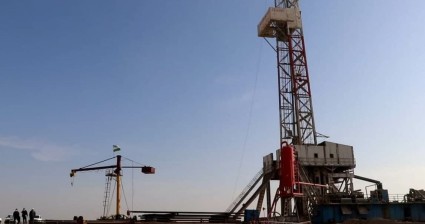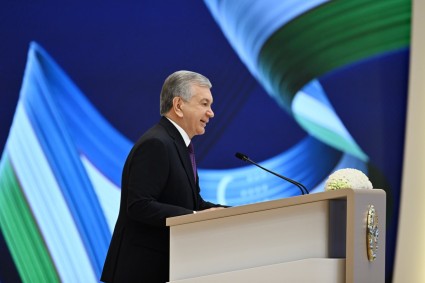The president Shavkat Mirziyoyev familiarized himself with a presentation on measures to create a value chain in agriculture Thursday, the presidential press service said.
Reportedly, in recent years, the land under cotton and grain crops has been reduced and reoriented to growing food crops, with 160 thousand hectares of new orchards and vineyards planted and $ 1 billion worth of 1,500 food production projects implemented.
Meanwhile, the ratio of the shadow economy in agriculture is still very high, not all manufactured goods are reflected in official reporting, with the VAT rate for food items standing at 12%.
This issue was raised at the meeting between the president and business leaders and entrepreneurs in August. The head of state instructed the responsible departments to create more favorable conditions for farmers and dehkans and reduce the tax burden.
Therefore, with the support of the International Monetary Fund, as well as foreign and local experts, proposals have been drafted to bring the agricultural sector out of the "shadows".
As per these proposals, from January 1, 2026, zero VAT rate shall be applied to farmers for their own products, namely fruits, vegetables, meat, milk, eggs and other agricultural products, with the exception of cotton and grain.
Meanwhile, the practice of returning the VAT paid on seeds, fertilizers, fuel, transport, electricity and other production costs will be kept.
As a result, farmers are expected to keep of 300 billion soums annually. They will be able to return another 400 billion soums through the new benefit.
In July, entrepreneur Bekzod Mamatkulov proposed reducing the VAT rate from 12% to 1% for agricultural producers so that farmers could get back on their feet.
“The biggest burden on agricultural enterprises today is VAT. In the world - in Europe, in Holland, Germany, Belgium - agriculture is subsidized by the state everywhere. We have a VAT rate of 12%. Let's think about it. These 2 trillion soums, I am sure, will become 200 trillion by the end of the year. Let's solve this issue,” he said.
He spoke about the high cost of growing products due to expensive fertilizers and fuel, and also called for a review of minimum export prices.











